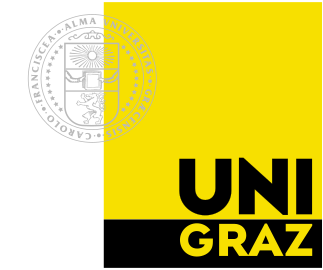Complex Systems and Dynamics Group
Members
Former members
Visiting members
Seminars
Applied Analysis, Complex Systems & Dynamics
Together with the Applied Analyis and Applied Mathematics groups, we are organising a weakly seminar on Tuesday, which is also streamed online. More details can be seen at the seminar website.
Group seminars
10:00 - 11:00: Le Bach Ngoc Pham (University of Szeged, Hungary)
Title: Existence of a homoclinic solution for a delay differential equation
Abstract:The Mackey-Glass type equation models a significant Allee effect in population dynamics. This simple-looking differential equation with a single delay attracted the attention of many mathematicians because of its complex dynamics. Numerous mathematical and numerical studies of the equation have revealed its convergence, oscillations in solutions, and complicated behavior. Despite extensive research, the dynamics of the equation have yet to be fully comprehended.
In this talk, we consider the limiting version of the Mackey-Glass type equation
\( y'(t) = -ay(t) + b \begin{cases} y^2(t-1) &\text{ if } y(t-1) \in [0,1),\\ 0 &\text{ if } y(t-1) \ge 1 \end{cases} \)
with \(b > a > 0\). First, for certain parameter values \(a, b\), a ball with its radius as large as possible is constructed such that there is nonexistence of nonconstant periodic solutions inside the ball. Then, we prove that the solution enters the ball for a long time \(t\), and remains there by applying the discrete Lyapunov functional and the computer-assisted proof. Consequently, a homoclinic solution of the limiting equation exists. This result motivates the existence of a homoclinic solution of the Mackey–Glass type equation for large values of \(n\), some parameters \(a_n, b_n\) such that these are close to \(a, b\).10:00 - 11:00: Lien Nguyen (Hanoi National University of Education, Vietnam)
Title: Mittag - Leffler stability of mild solutions to Caputo fractional-order time-delay systems
Abstract: In this talk, some classes of fractional - order time-delay systems described by Caputo fractional derivative in both linear and nonlinear cases are introduced. For the linear case, the concept of mild solutions, a type of integral solutions or generalized solutions, is presented and the existence and uniqueness of mild solutions is explored using the Banach fixed point theorem. Then, by utilizing the properties of Mittag - Leffler functions and novel comparison techniques, Mittag - Leffler stability of mild solutions is addressed. The proposed conditions are derived from both the spectral-type conditions and matrix inequality-type conditions. These results also can be extended naturally for a special nonlinear case, the homogeneous cooperative systems.
11:00 - 12:00: Hong-Hai Ly (University of Ostrava, Czech Republic)
Title: Spectral Convergence of Neumann Laplacian Perturbed by an Infinite Set of Curved Holes
Abstract: We propose the novel spectral properties of the Neumann Laplacian in a two-dimensional bounded domain perturbed by an infinite number of compact sets with zero Lebesgue measure, so-called curved holes. These holes consist of segments or parts of curves enclosed in small spheres such that the diameters of holes tend to zero as the number of holes approaches infinity. Specifically, we rigorously demonstrate that the spectrum of the Neumann Laplacian on the perturbed domain converges to that of the original operator on the domain without holes under specific geometric assumptions and an appropriate selection of hole sizes. Furthermore, we derive sophisticated estimates on the convergence rate in terms of operator norms and estimate the Hausdorff distance between the spectra of the Laplacians.
11:00 - 12:00: Hong-Hai Ly (University of Ostrava, Czech Republic)
Title: An Asymptotic Formula for Eigenvalues of the Neumann Laplacian in Domains with a Small Star-shaped Hole
Abstract: In this talk, we present a spectral problem of the Laplace operator in a two-dimensional bounded domain perforated by a small arbitrary star-shaped hole and on the smooth boundary of which the Neumann boundary condition is imposed. It is proved that the eigenvalues of this problem converge to the eigenvalues of the Laplacian defined on the unperturbed domain as the size of the hole approaches zero. Furthermore, our main theorem provides the rate of convergence by showing an asymptotic expansion for all simple eigenvalues with respect to the size and shape of the hole.
